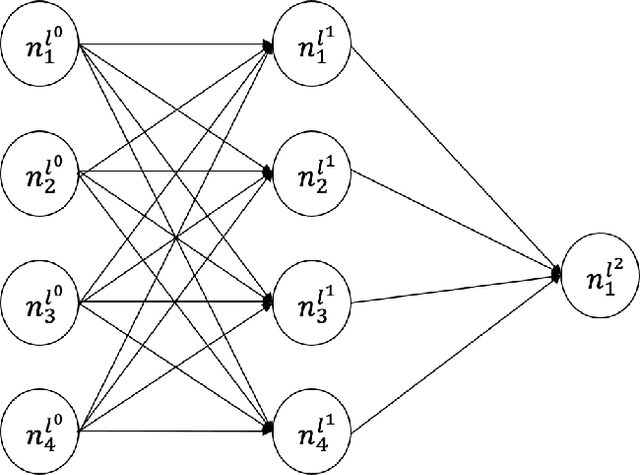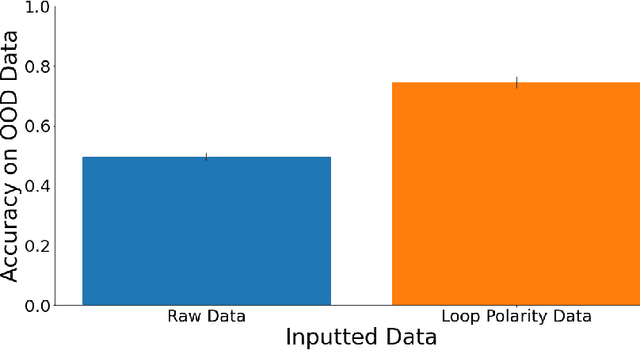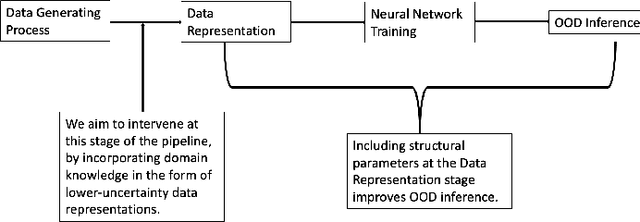Causal Theories and Structural Data Representations for Improving Out-of-Distribution Classification
Paper and Code
Sep 18, 2023



We consider how human-centered causal theories and tools from the dynamical systems literature can be deployed to guide the representation of data when training neural networks for complex classification tasks. Specifically, we use simulated data to show that training a neural network with a data representation that makes explicit the invariant structural causal features of the data generating process of an epidemic system improves out-of-distribution (OOD) generalization performance on a classification task as compared to a more naive approach to data representation. We take these results to demonstrate that using human-generated causal knowledge to reduce the epistemic uncertainty of ML developers can lead to more well-specified ML pipelines. This, in turn, points to the utility of a dynamical systems approach to the broader effort aimed at improving the robustness and safety of machine learning systems via improved ML system development practices.
 Add to Chrome
Add to Chrome Add to Firefox
Add to Firefox Add to Edge
Add to Edge